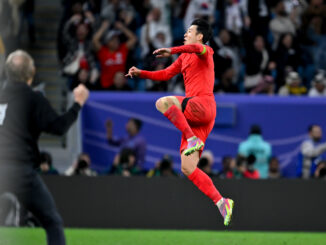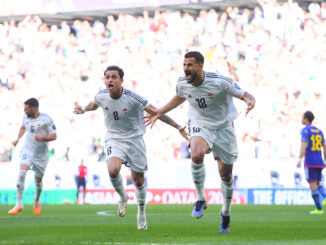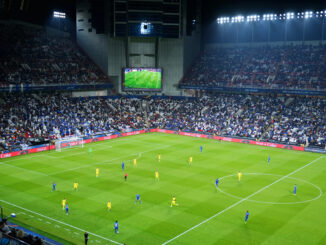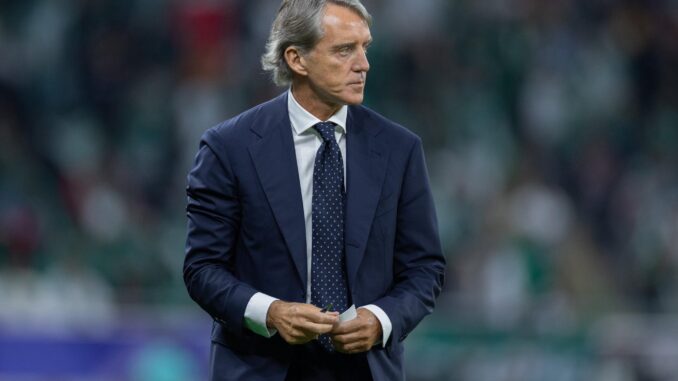
The pained look on Roberto Mancini’s face as he shook hands with his Kyrgyz counterpart, Stefan Tarkovic, said it all.
The veteran Italian could barely disguise his frustration, perhaps even contempt, at the way his side had toiled to an unconvincing 2-0 victory over the nine men of Kyrgyzstan.
While the result safely sees Saudi Arabia through to the Round of 16, the manner of the performance will fill the column inches and the football talk shows in Riyadh for the days to come.
After his his side’s first 180 minutes of action Mancini is already playing down the prospect of the trophy returning to the Kingdom for the first time since 1996.
“I chose my favourites based on the rankings,” he said after the game, “and the rankings say Japan, Iran, Korea [Republic] and Australia.
“We are too far behind them.”
It’s been far from a smooth tournament for the Green Falcons, who arrived in Qatar as one of the fancies to claim the silverware come the middle of February.
But a media storm erupted on the eve of the tournament when Mancini questioned the loyalty and commitment of some of the nation’s elder statesmen, such as Salman Al-Faraj, who he opted to leave out of the 26-man squad for this tournament.
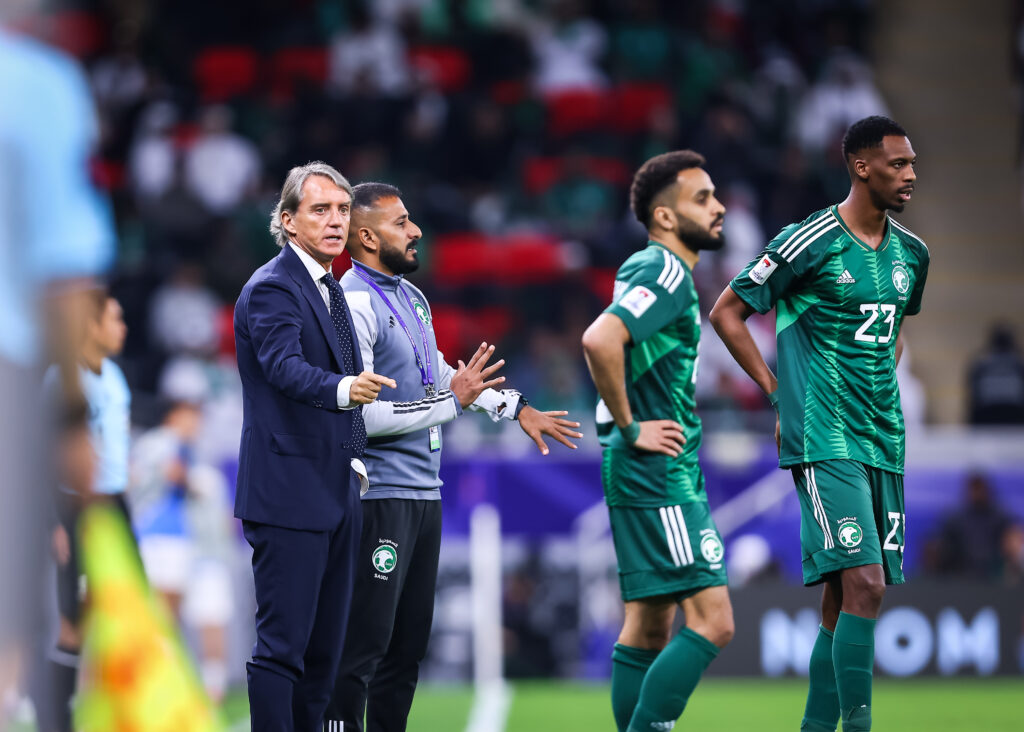
While the last minute winner over Oman momentarily provided some respite, it also papered over the cracks of what was a rather lacklustre performance overall. Only the introduction of livewire attacker Abdulrahman Ghareeb saved Saudi Arabia’s blushes from an embarrassing opening loss to their GCC neighbours.
The 59-year-old Mancini, who guided his native Italy to Euros success in 2021, would have been expecting and anticipating a much better showing at the Ahmad bin Ali Stadium on Sunday evening.
When defender Ayzar Akmatov received an early red card for a crude challenge on Sami Al-Najei, his expectations, like all those watching at the stadium and at home, would only have risen.
Against ten men, this was an opportunity to dominate the ball, find spaces between the lines and behind the defence and put together a really convincing performance that underscored their title credentials.
When they were further reduced to nine early in the second half, there were no excuses not to go for the jugular and boost their goal difference.
What transpired, however, was the complete opposite and will have Mancini and his coaching staff mulling over how to get the best out of this side ahead of their final group stage game against Thailand.
Most concerning will be their inability to create against even nine men, with their second goal only coming after a howler from Kyrgyz goalkeeper Erzhan Tokotaev. While Kyrgyzstan defended superbly, there are clear warning sings for Mancini as he looks ahead to tougher challenges in the knockout rounds, which now includes the possibility of facing Korea Republic in the Round of 16.
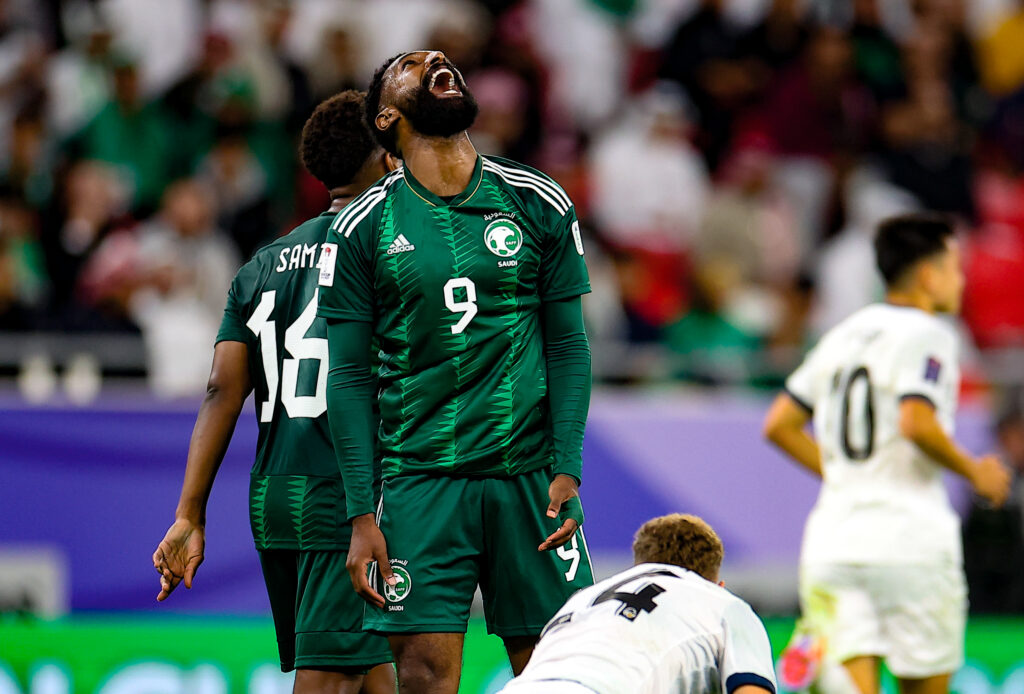
While their progression is secured, a result is still needed against Thailand to guarantee top spot in Group F, with Mancini already flagging potential changes to the team that starts against the War Elephants.
“We have 26 players and we play every three games, for that reason we have to rotate the squad,” he said.
“We will see the players for two days before the next game (and) then we will decide.”
An obvious change would be the introduction of Ghareeb from the start. The Al Nassr winger changed the game against Oman, and again looked lively off the bench against Kyrgyzstan.
He is one player that looked capable of breaking the lines and forcing the Kyrgyz defenders to turn and defend, and in doing so created Saudi Arabia’s best opportunities of the match.
But perhaps what is needed more than anything is a change in mindset.
That Mancini went public with his criticisms of senior players was no accident, and perhaps speaks of a playing group that are too comfortable in their positions.
At some point the question needs to be asked as to whether this side is too happy basking in the afterglow of their historic win over Argentina at the World Cup 14 months ago?
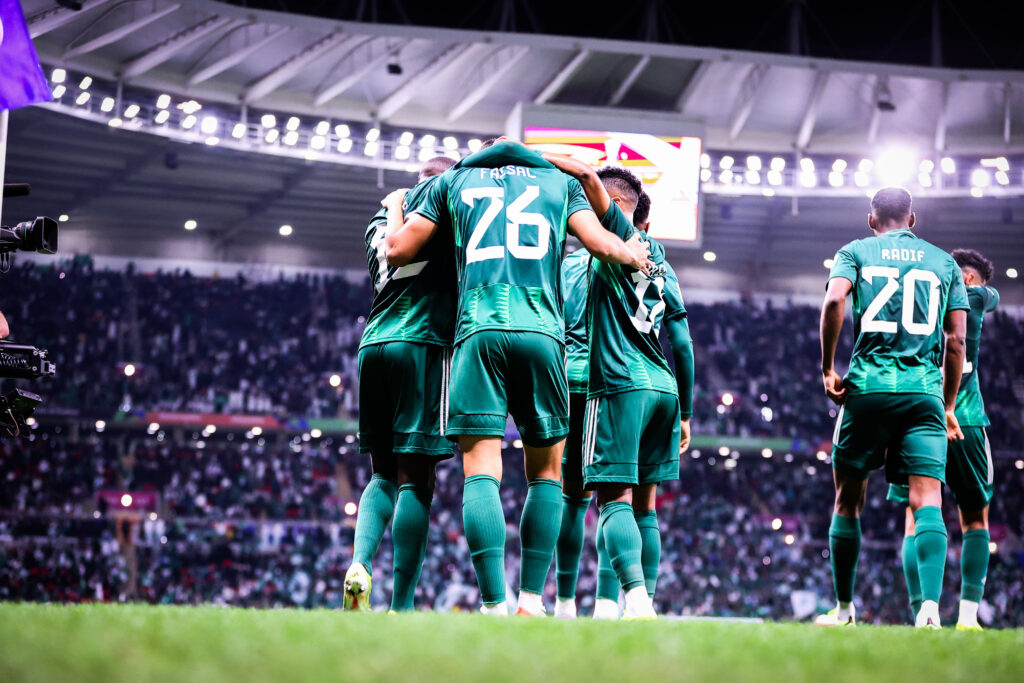
Because, for as momentous as that occasion was, the Green Falcons have not carried that momentum forward.
Given their fortunes since, you could easily fall into the trap of looking at that as a fluke result and not representative of what this team is truly capable of. But to do so would be to do a disservice to Herve Renard and everything he achieved during his tenure.
The win was the culmination of years of work that saw Saudi Arabia go from a side that exited the last Asian Cup with a whimper to one that had become the continent’s most effective side, finishing their qualifying group ahead of both Japan and Australia.
While the result against Argentina was headline-grabbing, the performance against Poland days later was arguably even better, albeit without the three points to go with it. It showed they can compete at that level.
While they exited at the group stage, their performances in Qatar, and in the years preceding had set a new standard of what we expected from the Green Falcons.
They are heights they are yet to reach since and perhaps now we have to question if they are heights they can reach again?
After the performance against Kyrgyzstan, it’s a question that’s still not been answered.
Photos: AFC / Saudi FF
Listen to The Asian Game Podcast as we look back on the start of the AFC Asian Cup 2023


